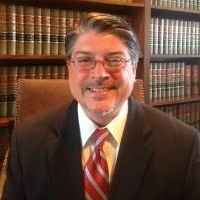Garner Collection Lawyer, Arkansas
Stephen B. Niswanger
✓ VERIFIEDLawsuit & Dispute, Collection, Real Estate, Contract, Construction
Steve Niswanger is the managing member of the firm and has about 20 years experience in business and general litigation and transactions, with an emph... (more)
Lyndsey D. Dilks
Bankruptcy, Bankruptcy Litigation, Collection, Commercial Bankruptcy
Status: In Good Standing
Tony Anthony Dicarlo
Real Estate, Lawsuit & Dispute, Collection, Accident & Injury
Status: In Good Standing
Steve Niswanger
Business, Real Estate, Collection, Foreclosure
FREE CONSULTATION
CONTACTFrederick Stearns Wetzel
Foreclosure, Credit & Debt, Collection, Bankruptcy & Debt
Status: In Good Standing Licensed: 44 Years
Robert M. Wilson
Collection, Landlord-Tenant, Real Estate, Foreclosure
Status: In Good Standing Licensed: 11 Years


